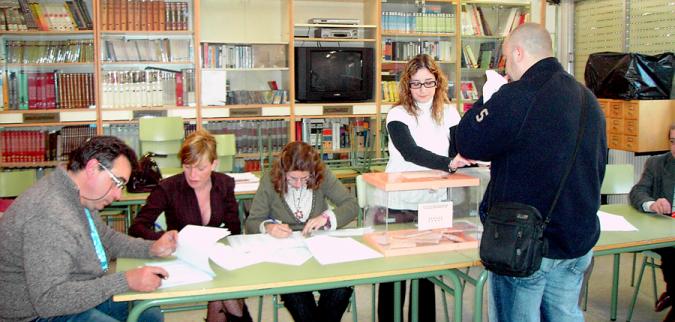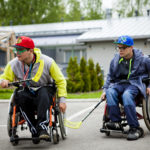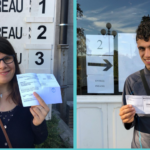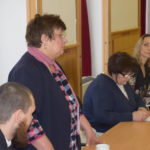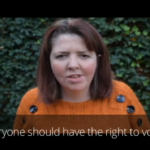[:en]
Click here for the easy-to-read version
It was a long fight, and it was worth it: The Constitutional Commission of the Spanish Congress of Deputies has given the green light to the reform of the country’s electoral system.
When it comes into effect, it will give back their right to vote to 100,000 people under guardianship in Spain, who are currently deprived of this fundamental civil right. It will also make it possible for them to stand for election.
The reform reflects the demands of disability organisations like Inclusion Europe’s member Plena Inclusión, who had campaigned for a change in law during several years.
They had based their call for a reform of the law upon the UN Convention on the Rights of Persons with Disabilities (UN CRPD), which Spain has ratified. It states in article 29 that signatories must “ensure that persons with disabilities can effectively and fully participate in political and public life on equal basis with others […] including the right and opportunity for persons with disabilities to vote and be elected […].”
The right to vote: still an unattainable dream for many people with intellectual disabilities under guardianship
In February last year, Plena inclusión, alongside other organisations, had claimed the right to vote for people under guardianship in a rally before the Constitutional Court. Since the Parliament committed to open the right to vote, the organisation had continued to advocate for a quick adoption with campaigns such as #MiVotoCuenta.
Inclusion Europe is delighted about the good news from Spain. The Spanish case shows how the UN CRPD can be a powerful tool to advocate for the rights of people with intellectual disabilities.
Unfortunately, in many European countries, the right to vote is still an unattainable dream for people with intellectual disabilities under guardianship. Even when being granted the right to vote, the inaccessibility of the entire process can still make it difficult to actually exercise it this right. It is therefore important that other European countries not only follow suit the Spanish example, but also make accessible elections a reality, for example through the use of easy-to-read and other adaptations.

Easy-to-read version
Click on a word which is in bold to read what it means.
“In Spain people with intellectual disabilities
will vote in the next elections”
In Spain there will be a change in the law
about elections.
The change will give back
the right to vote and to stand in elections
to a lot of people under guardianship.
Until now, they could not vote.
This is unfair,
because voting and standing for elections
is an important right for everybody.
This change came
thanks to the work of organisations
such as Plena Inclusión.
Plena Inclusión is
a member of Inclusion Europe.
Plena Inclusión has worked
for many years
to make this change happen.
The UN CRPD is an important document
about the rights of people with disabilities.
It says that people with disabilities
have the right to vote and
to stand for elections
like everyone else.
Spain has signed the UN CRPD,
so it must change the election law.
This is also what Plena Inclusión
and the other organisations have said.
Last year in February,
Plena Inclusión together with other organisations
went to demonstrate in front of an important Spanish court.
They asked for a change in the law.
They demonstrated in front of this court
because the judges of the court
had told a woman with intellectual disabilities
that she could not vote.
Plena Inclusión and the other organisations thought
that this was not right.
This is why they demonstrated in front of the court.
Plena Inclusión and the other organisations
also kept on using the hashtag #MiVotoCuenta
on social media.
“Mi voto cuenta” is Spanish.
It means “My vote counts”.
In this way many people could know
that they are fighting
to change the law.
Inclusion Europe is happy to hear
that the law will be changed in Spain.
We wrote before that
Plena Inclusión and the other organisations
used the UN CRPD to fight for a better law.
And now they were successful.
This means that the UN CRPD
is very useful to make the lives
of people with disabilities in Europe better.
But still in many European countries
people with intellectual disabilities under guardianship
cannot vote at elections.
And in many countries,
voting is not accessible
to people with intellectual disabilities.
For example,
because the information is not written in an easy-to-read.
This is bad because then it is difficult
for people with intellectual disabilities
to go and vote.
So it’s important that all European countries
follow the example of Spain.
And it is important that they work to make
elections really accessible.
For example, by using easy-to-read
to write information about how to vote
and who is standing for the elections.
[:]


